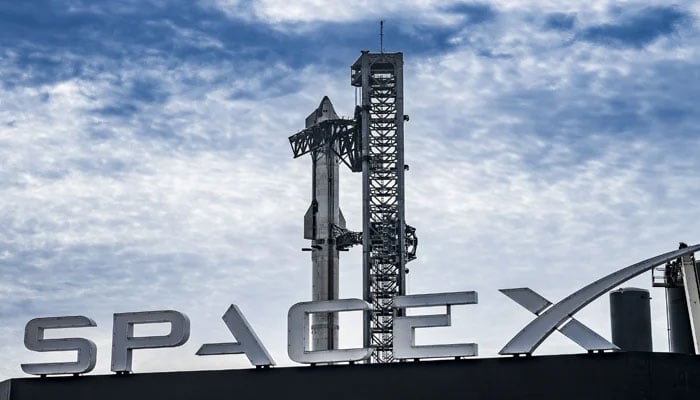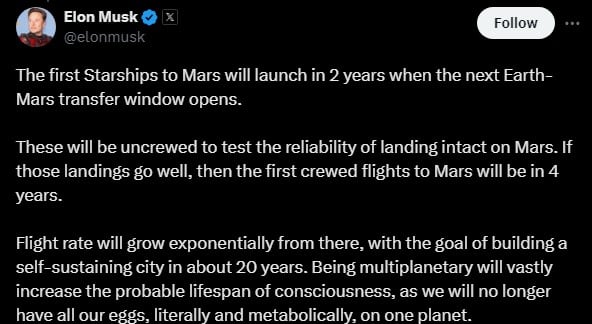SpaceX to launch first uncrewed missions to Mars in two years
Elon Musk says if uncrewed landings go well, his company will launch first manned flights to Red Planet in four years
SpaceX Chief Executive Officer (CEO) Elon Musk has said that his company would launch first uncrewed Starships to Mars in two years when the next Earth-Mars transfer window opens.
Taking to social media platform X, Musk said: "These will be uncrewed to test the reliability of landing intact on Mars."
The tech mogul further said if those landings go well the company will launch its first crewed flights to the Red Planet in four years.
His remarks come after he said in April that the first uncrewed starship to land on Mars would be within five years, with the first people landing on Mars within seven years.
Continuing on, the X owner said that after the crewed missions, the flight ratio will grow exponentially with "the goal of building a self-sustaining city in about 20 years".
"Being multiplanetary will vastly increase the probable lifespan of consciousness, as we will no longer have all our eggs, literally and metabolically, on one planet," the entrepreneur remarked.
Recalling that SpaceX created the first fully reusable rocket stage and made the reuse economically viable, Musk noted that making life multiplanetary was "fundamentally a cost per tonne to Mars problem".
"It currently costs about a billion dollars per ten of useful payload to the surface of Mars. That needs to be improved to $100k/tonne to build a self-sustaining city there, so the technology needs to be 10,000 times better. Extremely difficult, but not impossible," he said.
-
Shanghai Fusion ‘Artificial Sun’ achieves groundbreaking results with plasma control record
-
Polar vortex ‘exceptional’ disruption: Rare shift signals extreme February winter
-
Netherlands repatriates 3500-year-old Egyptian sculpture looted during Arab Spring
-
Archaeologists recreate 3,500-year-old Egyptian perfumes for modern museums
-
Smartphones in orbit? NASA’s Crew-12 and Artemis II missions to use latest mobile tech
-
Rare deep-sea discovery: ‘School bus-size’ phantom jellyfish spotted in Argentina
-
NASA eyes March moon mission launch following test run setbacks
-
February offers 8 must-see sky events including rare eclipse and planet parade













